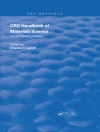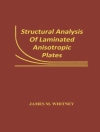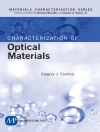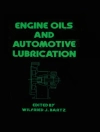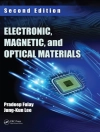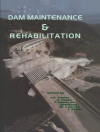This book shows how the use of biodegradable plastics in agriculture can have a profound positive impact on plasticulture. Starting with an organic chemistry approach to biodegradable and compostable plastics, both natural and synthetic, it then analyzes the technological and agronomic aspects of existing bioplastics for protected cultivation (mulching, direct cover, low tunnels). It describes the new sprayable biodegradable mulching method, which is based on the use of waterborne polysaccharides and cellulosic fibers. A further chapter describes the research and technology of biodegradable plastics for different agricultural practices. It also includes chapters on life cycle assessment (LCA) of biodegradable plastics for agriculture, and existing and developing standards in the field. It is a valuable resource for agronomists, chemical and materials engineers, polymer technologists and scientists, as well as for a more general readership interested in the application of green chemistry principles to the vast world of crop production.
Mario Malinconico < is Research Director at the Institute of Polymers, Composites and Biomaterials, National Research Council, Italy.
Tabela de Conteúdo
The World of Plasticulture.- Biodegradable and Biobased Plastics: An Overview.- Biodegradable Materials in Agriculture: Case Histories and Perspectives.- Agronomic Effects of Biodegradable Films on Crop and Field Environment .- Biodegradable Spray Mulching and Nursery Pots: New Frontiers for Research.- Standards for Soil-Biodegradable Plastics.- Life Cycle and Environmental Cycle Assessment of Biodegradable Plastics for Agriculture.
Sobre o autor
Dr. Mario Malinconico received his Ph D in Industrial Chemistry at the University of Naples “Federico II” in 1979. He was a Research Assistant at the University of Liverpool in 1980. Today he is the Research Director of the Institute for Polymers, Composites and Biomaterials (IPCB), Italian National Research Council, Naples, Italy and the Head of the Laboratory of Polymer Synthesis and Chemical Modification of Polymers. He is also the Member of the Board of Directors of UNIPLAST, the Italian Normative Body for Plastics, and the President of the S&T Committee of Italian Assobioplastiche Association (which includes companies such as Novamont, Nature Works, Basf, and Biochemtex). He is the Italian Representative at IUPAC and Member of the Polymer Division. He was one of the three winners of the St. Andrews Prize for the Environment in 2004 for his studies on biodegradable mulchings. In 2013 he was awarded the IUPAC Distinguished Scientist Award for Novel Materials and Their Synthesis. He is an expert in polymer synthesis, chemical modification of natural and synthetic polymers, bio packagings, recycling of polymers and composites, and biomedical polymers. He has contributed to the area of reactive polymer blends, either thermoplastic or thermosetting, focussing on the interfacial chemistry. He is the author of 190 papers on international peer-reviewed journals, and of many chapters in international books and handbooks. He also holds 15 patents and serves as the reviewer for many international journals.


